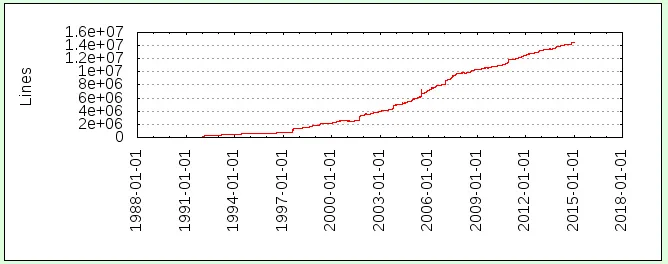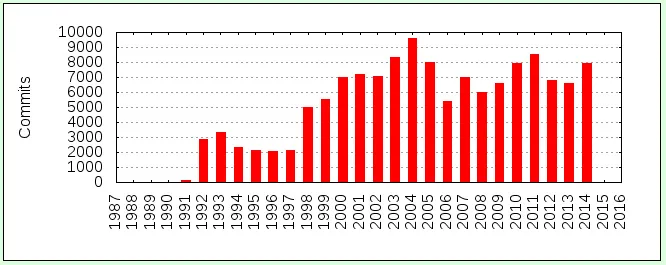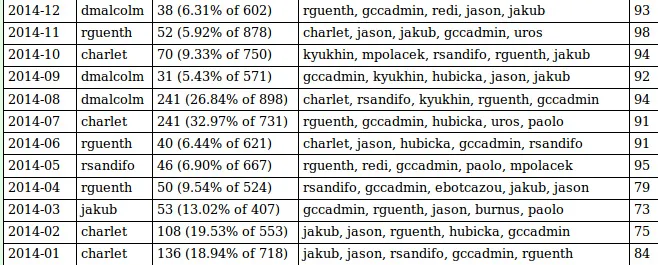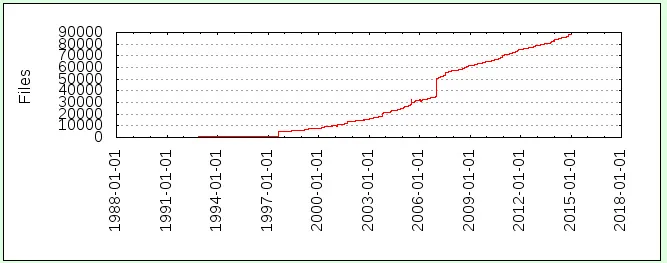If you thought
LLVM/Clang with just under four million lines was a huge code-base for a compiler as
the entire Linux kernel is over 19 million lines, just wait until you see the current size of GCC.
In 2014, GCC soared past 14.5 million lines of code.

GCC in 2014 saw the release of the big
GCC 4.9 followed by development getting underway on
GCC 4.10 but that has since been renamed to
GCC 5. As covered by the dozens of aforelinked GCC 5 articles, this compiler update due out in the months ahead is going to be
HUGE. There's so many exciting additions in GCC 5.0 from various compiler optimizations, GNU11 being the default C mode, support for various new C++14 features, official DragonFlyBSD support, and various x86/x86_64/ARM hardware target enhancements. Development on GCC 5 isn't yet over and there's already too much to easily list. I'm very excited for GCC 5!

GCC in 2014 saw 7920 commits/revisions which was more than in 2013 and 2012 when they came in at 6575 and 6830, respectively. The code churn in 2014 was +1411849 and -730544, or a net gain of 681k LOC.

GCC in 2014 saw contributions from 73~98 individuals per month, or a total of 205 distinct authors for the year, which is actually an increase over previous years and an all-time high for the project going back to 1988. However, this is behind LLVM seeing contributions from 272 individuals for 2014.

GCC is spread across 88.5k files with its 14.5 million lines. Beyond C/C++, don't forget that GCC also maintains language support for Objective-C/Objective-C++, Fortran, Java, Ada, and Google Go. OpenMP is also fully supported in GCC while LLVM/Clang's code-base is still lacking full support.
By these numbers, GCC seemed to have a great year. GCC advanced a lot in 2014 and all the work on GCC 5 has me very much looking forward to its release later this year. Stay tuned to Phoronix for more compiler benchmarks and GCC 5.0 coverage.


